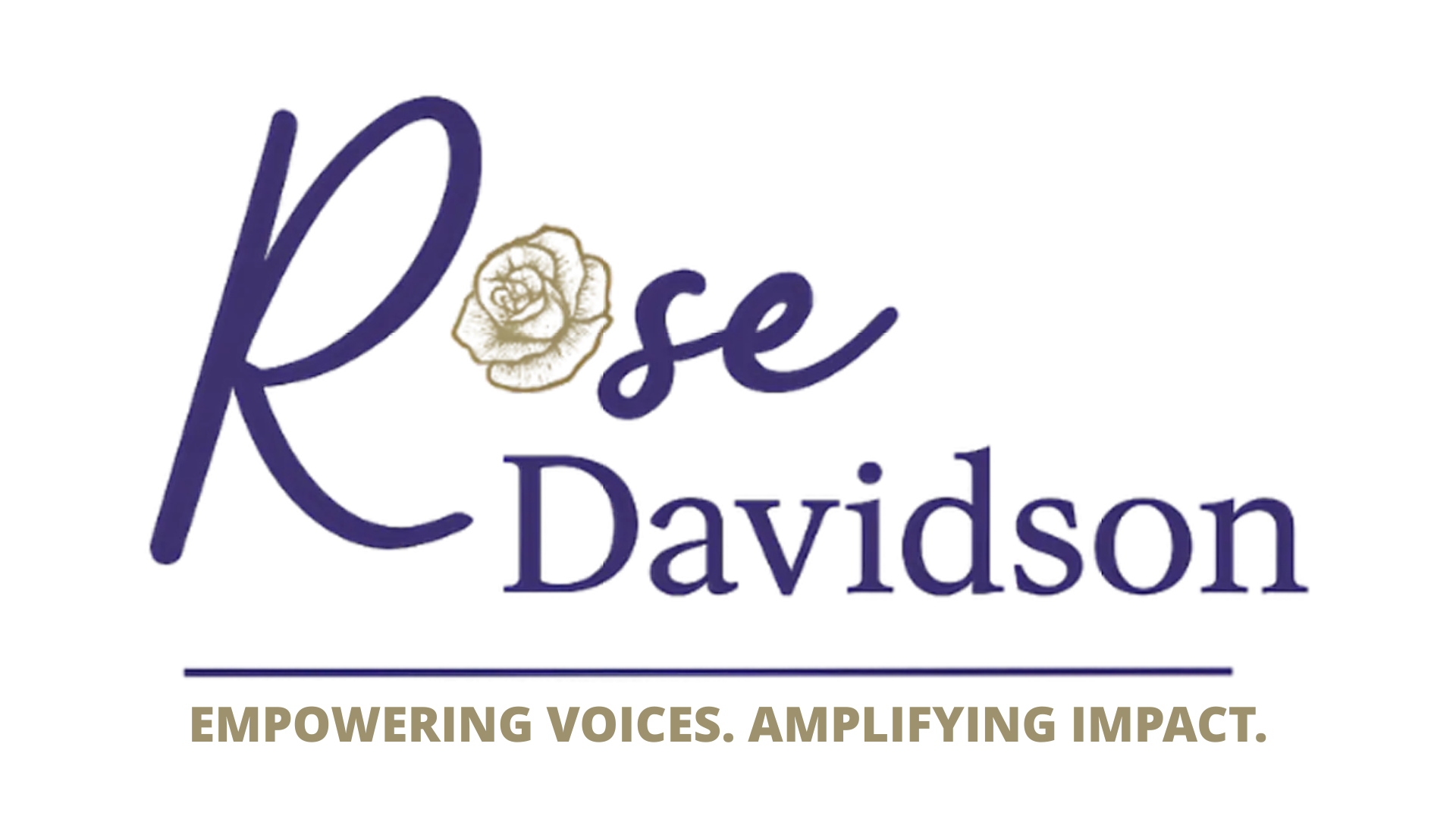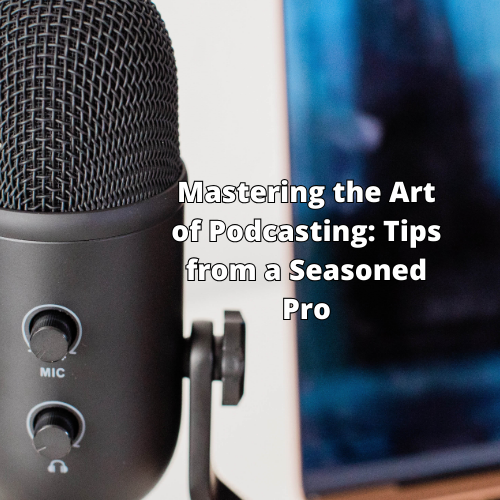Podcasting has emerged as a dynamic and influential medium for sharing stories, information, and entertainment. With millions of podcasts available, standing out and creating a successful show requires skill, strategy, and dedication. This comprehensive guide, featuring tips from a seasoned pro, will help you master the art of podcasting. From content creation to audience engagement, and from technical aspects to marketing strategies, you’ll learn everything you need to know to elevate your podcasting game.
Understanding Your Why
Before diving into the technical aspects and content creation, it’s crucial to understand your motivation for starting a podcast. Your “why” will guide your decisions, keep you focused, and help you stay motivated through the challenges. Ask yourself:
Having clear answers to these questions will shape the direction of your podcast and help you stay on track.
Finding Your Niche
In the crowded podcasting landscape, finding a niche is essential for attracting a dedicated audience. Your niche should align with your passions, expertise, and the interests of your target audience. Consider the following steps to identify your niche:
– Brainstorm Topics: List areas you are passionate about and knowledgeable in.
– Research the Market: Identify gaps in the market where your podcast can provide unique value.
– Define Your Unique Selling Proposition (USP): Determine what sets your podcast apart from others in the same category.
By honing in on a specific niche, you can attract a loyal audience who share your interests.
Planning Your Content
A successful podcast requires careful planning and organization. Creating a content calendar will help you stay consistent and ensure that your episodes are well-structured and engaging. Here are some steps to plan your content effectively:
– Create a Content Calendar: Plan your episodes in advance, including topics, guests, and release dates.
– Outline Each Episode: Develop a clear outline for each episode to keep your content focused and engaging.
– Mix Up Your Content: Include a variety of episode formats, such as interviews, solo episodes, and panel discussions, to keep your audience interested.
Consistent and well-planned content will keep your listeners coming back for more.
Investing in Quality Equipment
Good audio quality is crucial for a professional-sounding podcast. Investing in quality equipment will significantly improve your listeners’ experience. Here are the tools you’ll need:
– Microphone: A good-quality microphone is a must. Consider options like the Audio-Technica ATR2100x or the Shure SM7B or RODE Mini.
– Headphones: Use closed-back headphones to monitor your recordings and avoid sound leakage.
– Audio Interface: An audio interface like the Focusrite Scarlett 2i2 will ensure clear sound quality.
– Recording Software: Use software like Audacity (free) or Adobe Audition (paid) for recording and editing.
Investing in quality equipment will make a noticeable difference in your podcast’s audio quality.
Creating Engaging Content
Creating engaging content is key to attracting and retaining listeners. Here are some tips to make your episodes compelling and valuable:
– Be Authentic: Your unique voice and personality set your podcast apart. Be genuine and let your authenticity shine.
– Tell Stories: People connect with stories. Incorporate storytelling elements to make your content relatable and memorable.
– Provide Value: Ensure that each episode offers valuable insights, information, or entertainment to your audience.
– Keep It Concise: Respect your listeners’ time by keeping your episodes focused and to the point.
Engaging content will keep your audience hooked and eager for more.
Mastering Interview Techniques
Interviews can add depth and variety to your podcast. Mastering interview techniques will help you get the most out of your guests and provide valuable content for your listeners. Here are some tips for conducting great interviews:
– Research Your Guest: Learn about your guest’s background, work, and areas of expertise.
– Prepare Questions: Prepare a list of questions but be flexible and allow the conversation to flow naturally.
– Listen Actively: Pay attention to your guest’s answers and ask follow-up questions based on their responses.
– Create a Comfortable Atmosphere: Make your guest feel at ease to encourage open and honest conversation.
Effective interview techniques will result in engaging and insightful episodes.
Editing and Post-Production
Editing is a crucial step in producing a polished and professional podcast. Here are some tips for effective editing and post-production:
– Edit for Clarity: Remove any filler words, long pauses, and background noise to ensure clear and concise audio.
– Enhance Audio Quality: Use tools like EQ, compression, and noise reduction to enhance the sound quality.
– Add Music and Effects: Incorporate music and sound effects to add interest and professionalism to your episodes.
– Consistency: Maintain a consistent editing style and sound quality across all episodes.
Well-edited episodes will enhance the listening experience and keep your audience engaged.
Engaging with Your Audience
Building a loyal audience requires active engagement and interaction. Here are some strategies to connect with your listeners:
– Social Media: Use social media platforms to promote your episodes, share behind-the-scenes content, and interact with your audience.
– Listener Feedback: Encourage listeners to provide feedback and suggestions and incorporate their input into your episodes.
– Community Building: Create a sense of community by engaging with your audience through comments, emails, and social media groups.
– Call to Action: Include clear calls to action in your episodes, such as asking listeners to subscribe, leave a review, or share your podcast.
Engaging with your audience will build a strong community and foster loyalty.
Promoting Your Podcast
Effective promotion is essential for growing your podcast audience. Here are some strategies to increase your podcast’s visibility:
– Social Media Marketing: Promote your episodes on social media platforms with eye-catching visuals and compelling descriptions.
– Collaborations: Collaborate with other podcasters and influencers in your niche to reach a broader audience.
– Guest Appearances: Appear as a guest on other podcasts to share your expertise and attract new listeners.
– Email Marketing: Build an email list and send newsletters to promote new episodes and share exclusive content.
– SEO Optimization: Optimize your podcast title, description, and episode titles with relevant keywords to improve search visibility.
Consistent promotion will help you reach a wider audience and grow your listener base.
Monetizing Your Podcast
Monetizing your podcast can provide additional income and support your efforts. Here are some ways to generate revenue from your podcast:
– Sponsorships and Ads: Partner with brands and businesses to include sponsored segments and advertisements in your episodes.
– Patreon and Memberships: Offer exclusive content and perks to listeners who support your podcast through platforms like Patreon and Buy Me A Coffee.
– Merchandise: Sell branded merchandise such as T-shirts, mugs, and stickers to your loyal audience.
– Affiliate Marketing: Promote products and services relevant to your audience and earn a commission on sales through affiliate links.
By diversifying your revenue streams, you can monetize your podcast effectively and sustainably.
Continuous Improvement
Podcasting is a dynamic and evolving medium. To stay relevant and successful, continuous improvement is essential. Here are some tips for ongoing growth and development:
– Stay Informed: Keep up with industry trends, new tools, and best practices.
– Seek Feedback: Regularly ask for feedback from your listeners and peers to identify areas for improvement.
– Experiment: Try new formats, topics, and marketing strategies to see what resonates with your audience.
– Invest in Learning: Attend podcasting workshops, webinars, and conferences to learn from experts and network with other podcasters.
Continuous improvement will help you stay ahead of the curve and maintain a successful podcast.
Mastering the art of podcasting requires dedication, strategy, and continuous effort. By understanding your “why,” finding your niche, planning your content, investing in quality equipment, creating engaging content, mastering interview techniques, editing effectively, engaging with your audience, promoting your podcast, monetizing your efforts, and continuously improving, you can create a successful and impactful podcast.
Podcasting is a rewarding journey that allows you to share your voice, connect with like-minded individuals, and make a difference in your niche. With these tips from a seasoned pro, you’ll be well-equipped to navigate the challenges and opportunities of podcasting and take your show to new heights.
Happy Podcasting!
Elevate Your Brand with Our Expert Community
Connect your brand with the hearts and minds of thousands. Partner with Talking with the Experts podcast for an advertising experience that transcends traditional boundaries.














